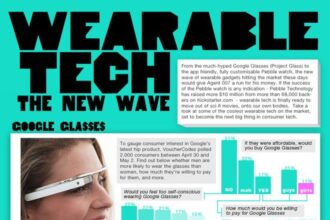It should come as no surprise that your discussions and interactions with physicians and health professionals influence diagnoses, prescriptions, visit frequencies and more. Historically, those interactions happened face-to-face, whenever a patient visited a doctor for a check-up or screening. This also meant follow-up visits took place in person anytime more discussions or communication was required. Thanks to modern technology, however, that?s no longer necessary. Physicians and patients can interact via digital platforms, in addition to giving health professionals a treasure trove of smart data and information about their patients. The digital landscape doesn?t just improve doctor-patient interactions ? it also improves age-old processes and procedures. Modern technology can speed up lab tests by 20 minutes or more. Sadly, even if universal solidarity among health professionals was possible ? which it?s not ? leaping to these tools and online platforms is extremely complicated.
Privacy and Security Are More Complex Than Ever Before
In the medical industry, personal health records and extraneous patient information aren?t just sensitive, they?re confidential in legal terms. An array of state and federal laws and regulations prohibit the sharing of personal information, especially data that?s contained in medical records. There may be dire consequences for this information leaking or becoming accessible to unauthorized parties. There?s no contest whether privacy and security matter, they?re crucial to the operation of the industry. HIPAA and PHI, or protected health information laws, prevent the professionals and anyone else dealing with this data to keep it secure. You could even argue the laws have become stricter during the move to the digital space. Even though nothing has changed, the concept of privacy and security is vastly different with digital content and files than it is paper records or physical documents. Complicating matters even more is the fact that there?s no single law or ruling governing over the facilitation of medical information. Instead, a sparse patchwork of regulations and security laws must be adhered to on both the state and federal levels. Each law, rule, regulation or guideline is different and therefore focused on a different subject and medium. For instance, some may apply to health plans and medical professionals, others may apply specifically to financial institutions or medical providers. Then there are a variety of data sources such as physical and digital medical records, financial records, receipts, payment information, claims, discrepancies and much more. The state of the landscape is more than just complicated ? it?s downright confusing at times even for medical health and insurance professionals who interact with it on a daily basis. That makes it remarkably difficult to adopt new technologies and standards, such as the digital tools and software on the rise today.
Using Smart Data to Reach Patients
It?s unfortunate that there?s a hindrance in the industry because this technology ? digital platforms specifically ? has the potential to change doctor-patient communications for the better. When the word ?patient? comes to mind, you initially think of the sick or hurting, right? However, patient is a blanket term that refers to both the healthy and unhealthy among us. Doctors interact with both categories of patient, with varying degrees of attentiveness. A person with diabetes, for example, will see a doctor more regularly than someone in perfect health for regular check-ups. In the past, doctors would have to converse with a patient and discern information through discussions, surveys, questionnaires, body language and physical examinations. That?s changing thanks to the birth of IoT, or the internet of things and smart technology. Modern devices ? like fitness trackers ? can be used to record a swath of data, which doctors are then able to review and factor into their diagnoses or treatments. One cardiologist, for instance, uses personal data trackers to monitor high-risk patients on a daily basis. Doctors are busy people, and they don?t always have time to monitor patients, especially a large group. That?s where big data, analytics tools and smart technology come into play. Someday soon, technology may replace up to 80% of what doctors do. Systems can be developed to monitor this information and alert health professionals when something is awry. Imagine knowing you have the symptoms of cancer sooner ? it could make or break your treatment, and even contribute to the difference between surviving and not. In the end, that?s totally worth it, no matter how complicated the space. That explains why digital platforms, smart technology and big data systems in the medical industry are taking off despite the complications and risks.









